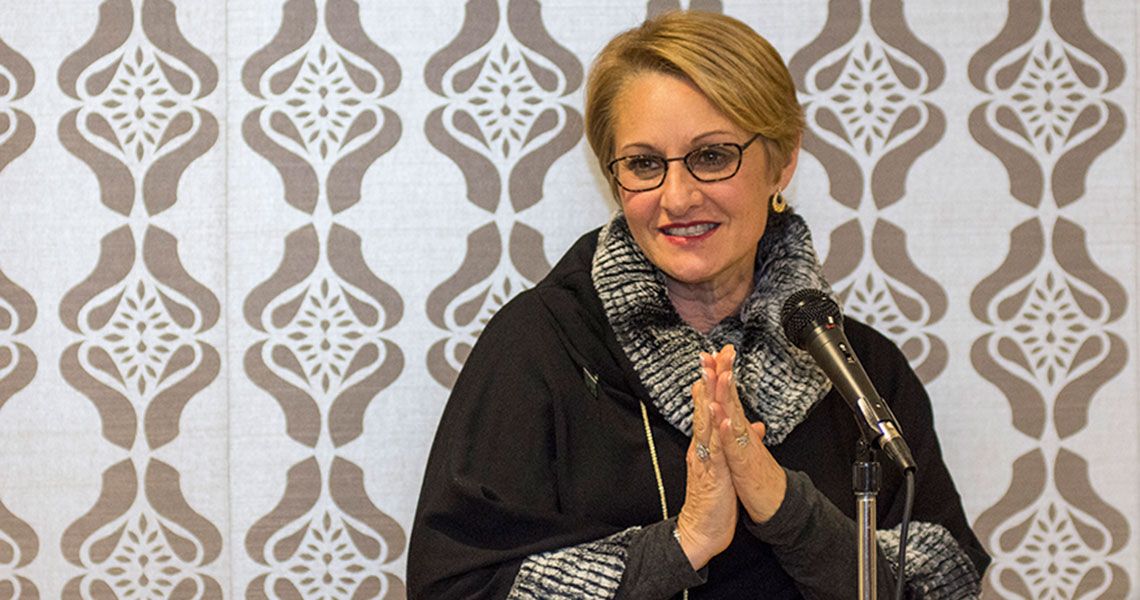It all started with an idea, said J. Keith Melancon, M.D., chief of the Division of Transplant Surgery, director of the GW Transplant Institute at GW Hospital, and professor of surgery at the GW School of Medicine and Health Sciences (SMHS): “I’m going to donate a kidney.”
“For some of you, it was for a loved one; for some of you, it was a friend; for some of you, it was an absolute stranger,” he said. “But everybody had to have that idea.”
Those who did, people with myriad backgrounds and motivations, and the recipients of their generosity gathered to celebrate at the first annual Living Donor Appreciation Celebration, held Nov. 16. Featured speakers at the event included Melancon and the members of his team — Thomas Jarrett, M.D., professor and chair of the Department of Urology at SMHS, and Muralidharan Jagadeesan, M.D., associate professor of medicine at SMHS — as well as kidney donors and recipients.
For Sewberath Misser, a kidney recipient, the decision to go through with the operation was taken out of his hands. He’d had aortic valve replacement surgery earlier in the year, and he couldn’t put his family through another big surgery – so they chose for him. “It was taken unilaterally [out of my hands] by the family where they excluded me; the decision was to keep me alive for the next few decades,” he said. Misser’s children underwent testing, and his oldest daughter, Sohira Mulford, was a match. Accepting her kidney, nicknamed “Louise,” was a “mental struggle and agony” for Misser, who couldn’t rationalize such a gift from his child. But the family had decided.
“I think [donating] is about three big powers: the power of the family, the power of love, and the power of healing,” he said, adding that “Louise” has since become “Louis” in his body.
Misser’s experience is precisely what the GW Ron and Joy Paul Kidney Center, which works in concert with the GW Transplant Institute, aims to replicate through educational and community outreach: saving the lives of those who need donations.
“This is one illness we can do something about,” said Joy Paul, noting that Washington, D.C. has among the highest rates of kidney disease. “If you have something that’s resolvable — and you can live a whole life — we don’t always get that chance. Kidney transplantation works.”
For those who did donate, the GW Transplant Institute, with the GW Ron and Joy Paul Kidney Center, presented tokens of appreciation: glass figures engraved with two-time kidney recipient Ron Paul’s favorite quote from Winston Churchill, “We make a living by what we get, but we make a life by what we give.”
“Everyone in here is going to live a lot longer because someone else that’s in here decided to give up a kidney,” said Melancon. “But really, what they did is save a life. Everyone in here is a representation of what is the best part of humanity.”



